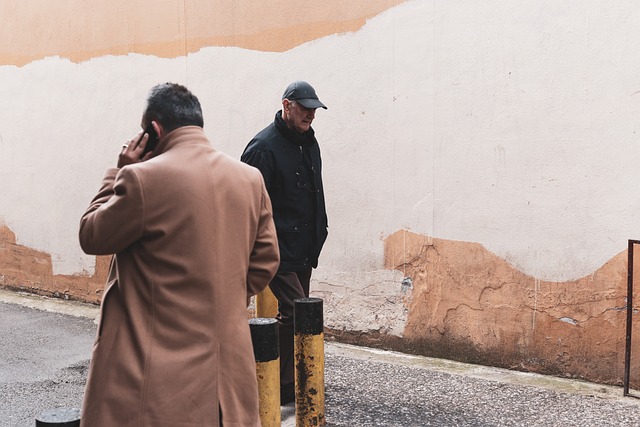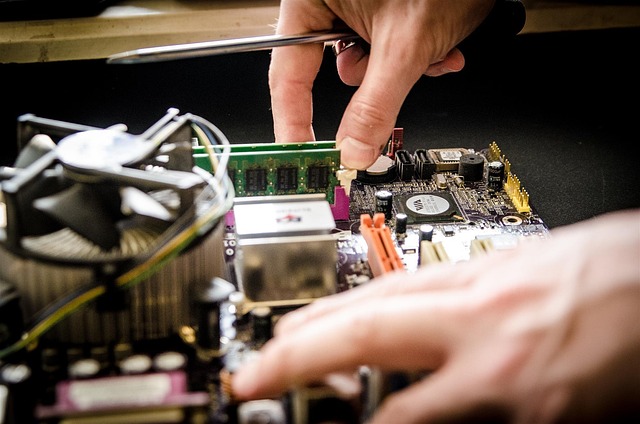Preventing leaks in new construction requires identifying common sources like poor sealing and faulty fixtures. A leak detection specialist emphasizes meticulous attention during construction, using high-quality materials and tools for waterproofing. Site staff training on leak signs and best practices is crucial, enabling prompt issue identification and reporting. Advanced leak detection technologies, including infrared cameras, revolutionize plumbing system inspection. Regular inspections by specialists detect subtle leaks early, preventing costly damage and promoting building longevity for all stakeholders.
Preventing leaks in new construction projects is paramount to ensure structural integrity, avoid costly repairs, and maintain client satisfaction. This comprehensive guide explores strategic solutions for leak-free constructions. We delve into understanding common leak sources, implementing robust waterproofing strategies, training site staff on best practices, leveraging advanced leak detection technologies, and conducting rigorous inspections and maintenance checks. By adopting these measures, contractors can minimize risks and elevate their standards as respected leak detection specialists.
- Understand Common Leak Sources in New Construction
- Implement Effective Waterproofing Strategies
- Train Site Staff on Preventive Measures
- Utilize Advanced Leak Detection Technologies
- Conduct Regular Inspections and Maintenance Checks
Understand Common Leak Sources in New Construction

In new construction projects, understanding common leak sources is the first step in preventing them. Leaks can originate from various points, such as poorly sealed joints, uninsulated pipes, and faulty fixtures. A leak detection specialist emphasizes that paying close attention to these areas during construction can significantly reduce post-construction issues. For instance, ensuring proper sealing around windows and doors, using high-quality insulation for pipes exposed to extreme temperatures, and installing top-tier fixtures capable of withstanding normal wear and tear are crucial leak prevention measures.
Additionally, knowledge of leak detection tips for homeowners is valuable. Homeowners can play a proactive role by regularly inspecting their properties for signs of moisture, such as mold growth or discolored walls. How to detect water leaks professionally involves using tools like moisture meters and thermal imaging cameras. Early detection through these methods allows for quick addressing of issues before they escalate into costly repairs. While leaky shower solutions DIY may seem appealing, it’s often best to consult professionals who can offer tailored advice and ensure long-term fixity.
Implement Effective Waterproofing Strategies

Implementing robust waterproofing strategies is a non-negotiable step in any new construction project. A leak detection specialist can help identify potential weak points and design solutions to prevent plumbing leaks in buildings before they occur. This proactive approach involves using high-quality materials, such as waterproof membranes, coatings, and seals, to create a protective barrier around critical areas like joints, laps, and edges.
Regular maintenance is also key to maintaining plumbing to avoid leaks over time. Fast action for serious leaks should be part of every construction project’s emergency response plan. By establishing clear protocols and training staff on leak detection techniques, developers can ensure that any issues are promptly addressed, minimizing damage and costly repairs.
Train Site Staff on Preventive Measures

Training site staff is an integral part of any new construction project aimed at preventing leaks. It’s crucial to educate everyone, from foremen to workers, on the importance of leak prevention and the role they play in ensuring a watertight structure. This involves teaching them about potential sources of leaks, such as poor sealing around fixtures or piping, and equipping them with the skills to identify early signs of trouble. Regular training sessions can also cover best practices for using protective barriers and membranes, along with proper installation techniques recommended by leak detection specialists.
Empowering your team with knowledge is a powerful tool in leak prevention. By understanding the signs and symptoms, site staff can promptly report potential issues, allowing for immediate action before minor problems escalate into costly repairs. Moreover, training should emphasize the importance of adhering to maintenance schedules and inspection protocols to identify and rectify leaks early on, saving both time and money, with costs for repairing roof leaks yourself often outweighing preventive measures.
Utilize Advanced Leak Detection Technologies

In today’s digital era, advanced leak detection technologies are transforming the way new construction projects are managed. Leak detection specialists employ sophisticated tools and techniques to identify potential issues before they become costly problems. These technologies range from infrared cameras that can detect subtle temperature variations indicating leaks to moisture meters that pinpoint exact locations of water intrusion. By leveraging these innovative solutions, construction teams can navigate complex plumbing systems with enhanced precision, ensuring that every pipe, joint, and fixture is thoroughly inspected.
Commercial leak detection services are not just for large-scale projects; they offer effective leaky faucet solutions for tenants and help stop leak problems at home as well. These specialists provide comprehensive assessments, utilizing non-invasive methods to minimize disruptions during construction. By integrating advanced leak detection into their processes, construction professionals can significantly reduce the likelihood of post-construction leaks, ensuring a more efficient, cost-effective, and worry-free experience for all stakeholders involved.
Conduct Regular Inspections and Maintenance Checks

Regular inspections and maintenance checks are vital components of leak prevention in new construction projects. Engaging a leak detection specialist to conduct thorough examinations at intervals throughout the building process can identify potential issues early on. These professionals use advanced tools and techniques, such as infrared cameras and ultrasonic sensors, to detect even the subtlest signs of leaks within complex plumbing systems.
By implementing regular maintenance routines, including checking for loose connections, inspecting pipes for damage or corrosion, and testing water pressure, builders can ensure that any issues are promptly addressed before they escalate into costly and disruptive problems. This proactive approach not only prevents damaging water leaks but also promotes the longevity of the building’s plumbing infrastructure, ultimately saving time, money, and hassle for both builders and future homeowners.
Preventing leaks in new construction projects is a multifaceted approach that involves understanding common sources, implementing robust waterproofing strategies, training site staff, utilizing advanced leak detection technologies, and conducting regular inspections. By adopting these measures, construction professionals can ensure the longevity and integrity of their structures, minimizing costly repairs and enhancing overall project quality. A proactive stance on leak prevention, guided by expert insights from leak detection specialists, is key to successful new construction.
